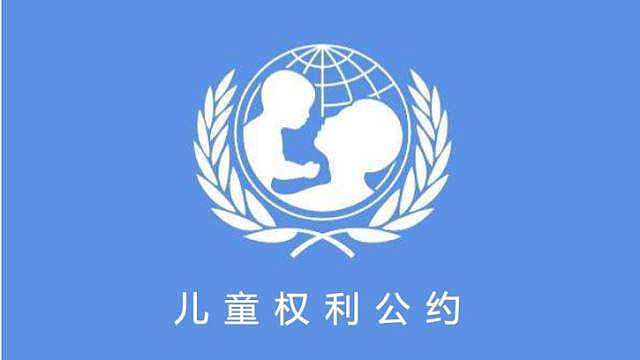
United Nations Convention on the Rights of the Child (Part 2)

Part II Article 42 States Parties undertake the responsibility, by appropriate and positive means, to make adults and children generally aware of the principles and provisions of this Convention.
Article 43 1. In order to review the progress made by States parties
in fulfilling their obligations under this Convention, a Committee on the
Rights of the Child shall be established to perform the functions set out
below.
2. The Committee shall be composed of 10 experts of high moral character and
recognized competence in the areas covered by this Convention. The members of
the Committee shall be elected by the State party from among its nationals and
shall serve in their personal capacity, taking into account the principle of
equitable geographical distribution and the main legal system.
3. Members of the Committee shall be elected by secret ballot from a list of
candidates nominated by the State party. Each State Party may nominate one
person from among its own nationals.
4. The initial elections of the Committee shall be held no later than six
months after the date of entry into force of this Convention and thereafter
every two years. The Secretary-General of the United Nations should write to
the State party at least four months before the date of the election to
nominate candidates for his nomination within two months. The Secretary-General
shall then prepare an alphabetical list of all persons nominated, indicating
the States parties that have nominated them, and shall send them to the States
parties to this Convention.
5. Elections shall be held at a meeting of States parties convened by the
Secretary-General at United Nations Headquarters. At such meetings, a quorum of
two-thirds of the States Parties shall be elected as a member of the Committee
with the largest number of votes and the absolute majority of the votes of the
States Parties present and voting.
6. Members of the Committee serve for a term of four years. Members shall be
eligible for re-election if they are nominated again. The term of office of
five members elected in the first election shall expire at the end of two
years; the chairman of the meeting shall immediately select five members by lot
after the first election.
7. If a member of the Committee dies or resigns or declares that it is no
longer capable of performing its duties for any other reason, the State Party
nominating that member shall designate another expert from its nationals to
replace the remaining term of office, subject to the approval of the Committee.
8. The committee shall establish its own rules of procedure.
9. The Committee shall elect its own officers for a term of two years.
10. Committee meetings should normally be held at United Nations Headquarters
or at any other convenient location determined by the Committee. The committee
should normally meet once a year. The duration of the Committee shall be
determined by the Meeting of States Parties to the Convention and reviewed as
necessary, subject to the approval of the General Assembly.
11. The Secretary-General of the United Nations shall provide the necessary
staff and facilities for the Committee to effectively perform its functions
under this Convention.
12. The members of a committee established under this Convention may receive
remuneration from the funds of the United Nations upon approval by the General
Assembly on conditions determined by the General Assembly.
Article 44 1. States parties undertake to report to the Committee,
through the Secretary-General of the United Nations, on the measures they have
taken to realize the rights recognized in this Convention and the progress made
in their enjoyment:
(A) within two years after the entry into force of this Convention for the
State Party concerned; (b) every five years thereafter.
2. The report submitted under this article shall indicate any factors and
difficulties that may affect the extent to which the obligations under this
Convention are fulfilled. The report should also contain sufficient information
to give the Committee a full picture of the implementation of this Convention
in that country.
3. If the State party has submitted a comprehensive initial report to the
Committee, it is not necessary to repeat the basic information previously
provided in subsequent reports submitted in accordance with paragraph 1 (2) of
this article.
4. The Committee may request further information from the State party on the
implementation of this Convention.
5. The Commission will submit a report on its activities to the General
Assembly through the Economic and Social Council every two years.
6. The State party will make its report available to the general public in
its own country.
Article 45 To promote the effective implementation of this Convention
and encourage international cooperation in the areas covered by this
Convention:
(A) The specialized agencies, the United Nations Children's Fund and other United
Nations agencies shall have the right to send representatives to review the
implementation of the provisions of this Convention falling within their area
of responsibility. The Committee may invite the specialized agencies, the
United Nations Children's Fund and other relevant bodies as it may consider
appropriate to provide expert advice on the implementation of this Convention
in areas falling within their respective areas of responsibility. The Committee
may invite the specialized agencies, UNICEF and other United Nations agencies
to submit reports on the implementation of this Convention in areas falling
within their scope of activity; (b) The Committee shall, when it may consider
it appropriate, report to the specialized agencies, The Foundation and other
relevant agencies forward any requests from States parties or indicate any
reports requiring technical advice or assistance and any comments and
suggestions made by the Committee on such requests or clarifications; (c) The
Committee may recommend that the General Assembly request the Secretary-General
to represent the Committee on child rights (D) The Committee may make
recommendations and general recommendations based on the information received
in accordance with Articles 44 and 45 of this Convention. Such proposals and
general recommendations shall be transmitted to any State Party concerned and
reported to the General Assembly, together with any comments made by the State
party.
Part III Article 46 This Convention shall be open for signature by all States.
Article 47 This Convention is subject to ratification. The instruments
of ratification shall be deposited with the Secretary-General of the United
Nations.
Article 48 This Convention shall be open to accession by all States.
The instruments of accession shall be deposited with the Secretary-General of
the United Nations.
Article 49 1. This Convention shall enter into force on the thirtieth
day after the date of deposit of the twentieth instrument of ratification or
accession with the Secretary-General of the United Nations.
2. This Convention shall enter into force on the thirtieth day after the date
of deposit of the instrument of ratification or accession for those States that
have ratified or acceded to it after the deposit of the twentieth instrument of
ratification or accession.
Article 50 1. Any State Party may propose an amendment and submit it
to the Secretary-General of the United Nations. The Secretary-General shall
immediately notify the States parties of the proposed amendment and ask them to
indicate whether they favour a conference of States parties to consider the
proposal and vote on it. The Secretary-General shall convene a meeting under
the auspices of the United Nations if at least one third of the States Parties
agree to such a meeting within four months of the date on which such
notifications are found. Any amendment adopted by a majority of the States
Parties present and voting shall be submitted to the General Assembly for
approval.
2. An amendment adopted in accordance with paragraph 1 of this article shall
enter into force when it has been approved by the General Assembly and accepted
by a two-thirds majority of the States parties.
3. Once an amendment has entered into force, it shall be binding on those
States Parties that have accepted it, and other States Parties shall remain
bound by the provisions of this Convention and any earlier amendments that they
have accepted.
Article 51 1. The Secretary-General of the United Nations shall
receive reservations formulated by States at the time of ratification or
accession and shall circulate them to all States.
2. Reservations whose content is incompatible with the object and purpose of
this Convention shall not be formulated.
3. A State Party may at any time submit a notification to the
Secretary-General of the United Nations requesting the withdrawal of a
reservation, and he shall inform all States of this fact. The notification will
take effect on the day the Secretary-General receives it.
Article 52 States Parties may notify the Secretary-General of the
United Nations in writing of their withdrawal from this Convention. The
denunciation shall take effect one year after the date of receipt of the notice
by the Secretary-General.
Article 53 designates the Secretary-General of the United Nations as
the depositary of this Convention.
Article 54 The Arabic, Chinese, English, French, Russian and Spanish
texts of this Convention shall be equally authentic and shall be deposited with
the Secretary-General of the United Nations.
Plenipotentiaries, duly authorized by their respective governments, have
signed this Convention for certification.
The Convention on the Rights of the Child, adopted by the United Nations in
1989, is the most widely recognized international convention in history. The
Convention on the Rights of the Child sets out the basic human rights that
should be accorded to all children: the right to survival; the right to full
development of all their physical and intellectual abilities; the right to
protect them from harm to their development; and the right to participate in
family, cultural and social life . The Convention on the Rights of the Child
protects these rights by establishing the minimum standards that governments must
meet to provide health care, education, legal and social services to their
children. The Chinese government ratified the Convention on the Rights of the
Child in 1992, and worked with various people's groups, international
organizations, the news media, and individuals to transform the obligations
under this Convention from a declaration of pure intent into an improvement of
the lives of all Chinese children Specific action plan.

Scanning two-dimensional code concerns our WeChat public number
 News information
News information
 Learning World
Learning World
 Publication
Publication
 Pilot application
Pilot application